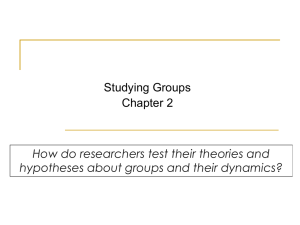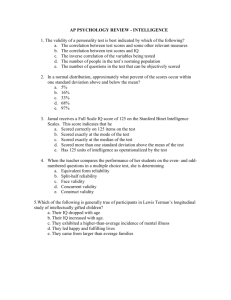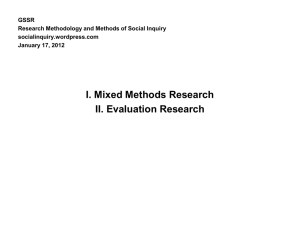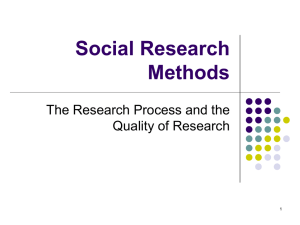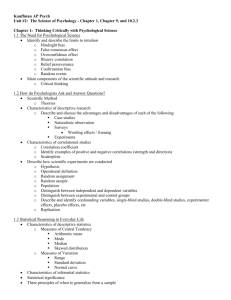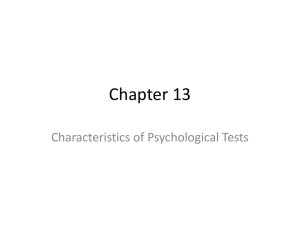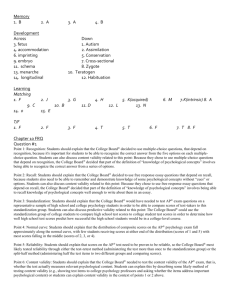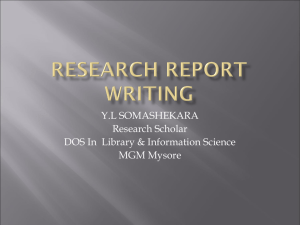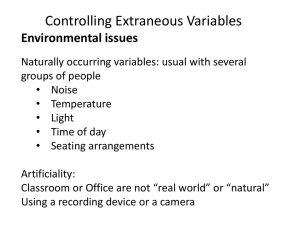Assessing Intelligence
advertisement
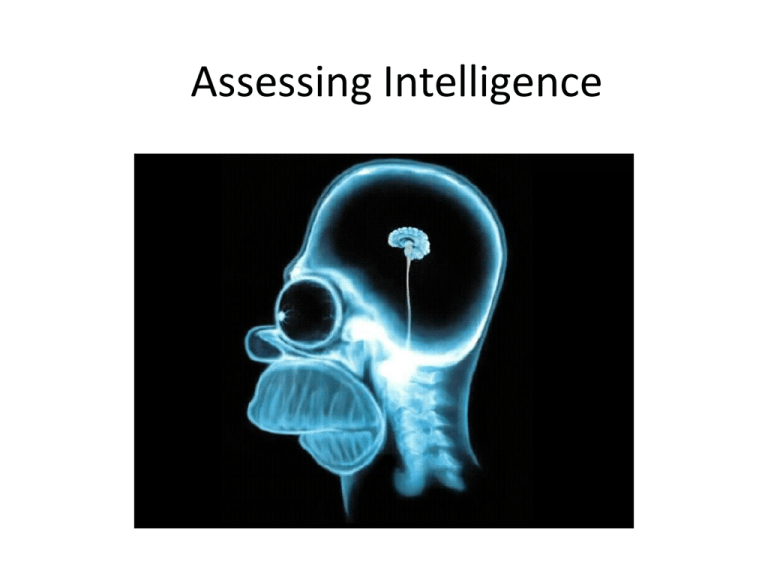
Assessing Intelligence Test Construction • Standardization – defining the meaning of scores by comparing to a pretested “standard group”. • Reliability – a measure of how consistent the test is. A test is reliable if people get similar scores on retest. How reliable is the SAT? – test-retest, parallel forms, split test • Validity – a measure of how well the test measures or predicts what it was designed for. Types of validity – Content validity – does it test the accepted content? How well do my tests reflect how much psychology you learned? – Predictive validity -- does the test predict what it is supposed to? (How well does the SAT predict success in college?) – Construct validity - how well does it operationalize the concept (or construct) it purports to measure? Do intelligence tests really measure the quality that is generally considered “intelligence”? Aptitude vs. Achievement Tests • Aptitude tests are designed to predict future performance. • Achievement tests are designed to measure current knowledge. What kind of validity is relevant to each? WAIS (Weschler Adult Intelligence Scale) • • • • most widely used intelligence test gives separate verbal and performance scores used to identify learning disabilities A learning disability is possible if either: - a child scores much higher on one section that the other - a child has a much higher aptitude score than achievement score. • WISC (Wechsler Intelligence Scale for Children) – modified version of WAIS for children Sample WAIS Verbal tasks: Most standardized tests result in a normal distribution (bell-shaped). In a normally distributed population, 68% of people fall within 1 standard deviation of the mean, 95% of people fall within 2 standard deviations of the mean, and 99.7% of people fall within 3 standard deviations of the mean. Reminder: The standard deviation is the square root of the variance. Swagilicious Test Imagine a test of coolness… • What types of questions or tasks might it include? • How would it be standardized? • How would you check the reliability of the test? • How would you check the validity of the test? • What problems or limitations might the test have? Review: 1. In chemistry, you learned the terms “accuracy” and “precision”. Here is a reminder if you’ve forgotten the difference: Accuracy is the degree of which a given measurement agrees with the standard value for that measurement. Precision is a measure of how well experimental values agree with each other. Which of these terms is analogous to reliability? Validity? 2. What is the difference between content validity and predictive validity? 3. What is the difference between an achievement test and an aptitude test? 4. What does it mean for a test to be “empirically derived”? More… 6. What is the WAIS? What are the two subtests? 7. What percent of people fall within 1 standard deviation of the mean on an intelligence test? Within 2 standard deviations? 8. If the standard deviation of a sample is 4, what is the variance? 9. Name two test indicators that a learning disability may be present. 10. Which type of test – aptitude or achievement – would you expect to have high predictive validity.
